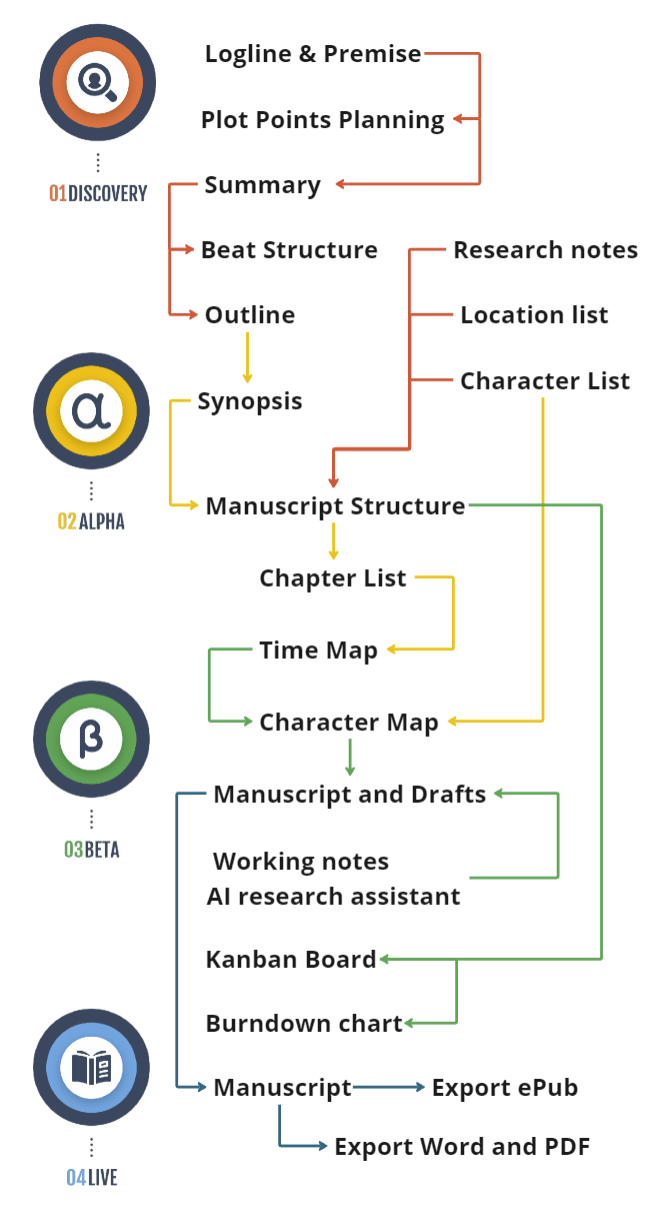Writers often focus on broad keywords like “fantasy novel” or “historical romance” to draw traffic, but the real strength of your online platform could lie in long tail keywords—more specific phrases that match user intent precisely. When you have leftover research from your novel, you likely already possess niche details that can attract a dedicated audience. This continuation of the “scraps from last night’s dinner” approach ensures every snippet of knowledge serves a dual purpose: engaging readers and boosting discoverability.
Long tail keywords are specialized search terms people use when seeking precise info (e.g., “gothic architecture in 12th-century France” or “zero gravity plant growth experiments”). These highly focused queries may generate fewer searches, but the conversion rate—people actually reading and staying on your page—tends to be higher. When you create blog posts or website sections dedicated to these specialized topics, you tap into an audience already hungry for exactly what you’re offering. This approach pairs perfectly with the leftover research that didn’t fit into your final manuscript.
Authors trying to grow an audience for a specific genre or theme benefit most from leveraging these targeted angles. If you’ve researched topics like cryptid folklore for a paranormal thriller or desert survival tactics for a dystopian saga, turning these tidbits into long tail–keyword posts can attract enthusiasts who share your interest. Anyone seeking to stand out in a crowded online space should consider going niche—speaking directly to a smaller but passionate community.
- Identify Unique Research Phrases
Skim leftover notes for terms or data not covered by mainstream articles (like an obscure historical figure or a lesser-known scientific theory). That’s your long tail seed. - Craft Specific Headlines
Instead of “Desert Survival Basics,” try “10 Real-Life Desert Survival Tactics For a Dystopian Fiction Setting.” Specific, benefit-driven headlines often rank well in search results. - Embed Relevant Quotes Or References
Cite sources that back up your research—an old diary entry, a museum artifact link, or an academic paper snippet. These references boost credibility and encourage external sites to link back to you. - Include Book Tie-Ins
Relate each piece of research to an aspect of your novel: “I used this secret method of water filtration in chapter ten, allowing my protagonist to outsmart the wasteland raiders.” - Optimize Meta Tags
Insert your chosen long tail keyword (e.g., “desert survival tactics dystopian fiction”) into the page title, meta description, and a couple of subheaders. Avoid keyword stuffing, but ensure search engines see its importance.
While broad keywords can drive general traffic, long tail keywords connect you with readers who might become lifelong fans. These individuals search for exactly the knowledge or storyline elements you’ve included. By matching user intent, you provide immediate value—and readers who find that value are likelier to explore the rest of your site, sign up for newsletters, or purchase your novel. This synergy between specialized content and novel promotion can significantly enhance your author brand.
Select one unique topic from your leftover research pile. Brainstorm a long tail keyword—something specific you suspect users might type into Google. Draft a brief blog post centering on that niche phrase. By blending precise knowledge with your novel’s allure, you’ll likely attract the right readers—and offer them an enticing glimpse of your fictional world.




